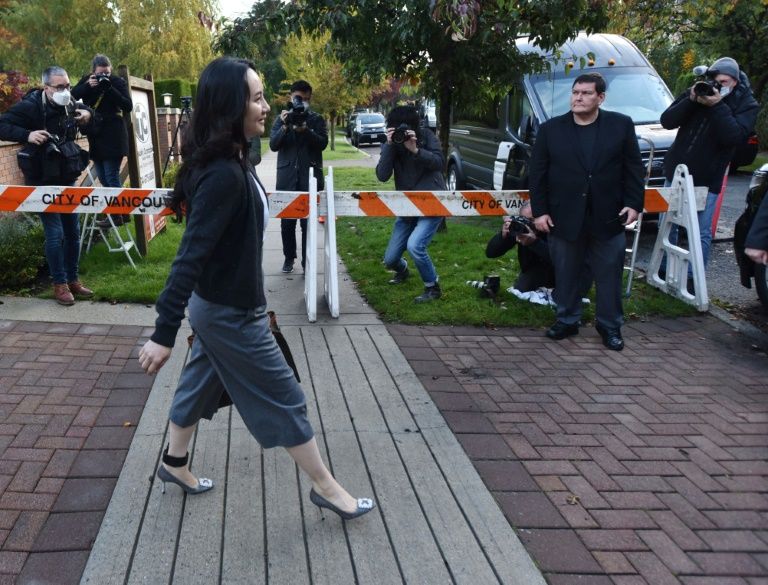Canadian policeman describes arresting Huawei exec Meng
Vancouver (AFP) – A Canadian police officer testified Monday about his arrest of Huawei executive Meng Wanzhou on a US extradition warrant, revealing that Washington had requested that data on her phone and laptop be secured so that it could not be “erased remotely.”
Royal Canadian Mounted Police Constable Winston Yep — the first witness to testify in the extradition case — arrested the Chinese telecom giant’s chief financial officer in December 2018 during a stopover in Vancouver.
She is charged with bank fraud related to violations of US sanctions against Iran.
Yep told the British Columbia Supreme Court he’d received a request to detain Meng the day before her flight from Hong Kong and it had been decided in advance that she would be arrested after disembarking.
“We talked about going on the plane… and didn’t think it was a good idea because of officer safety and public safety,” Yep said.
He recalled that US authorities had specifically instructed their Canadian counterparts to seize her electronic devices and place them in a “Faraday bag” designed to block any wireless transmissions in order to prevent “data from being erased remotely.”
The constable testified that he “didn’t know too much about” Meng or Huawei prior to her arrival in Canada.
Because she was a “high-profile person,” he added, his supervisor showed up at the airport to make sure nothing went wrong.
– ‘Poisoned’ –
Meng’s lawyers requested this week’s evidentiary hearing to try to convince Justice Heather Holmes that Canadian federal police and border agents violated Meng’s rights in questioning her and searching her devices in the three hours after she disembarked from the Hong Kong flight but before her arrest.
Over the coming week, they will also say that seizing and turning over the contents of her electronic devices to the FBI was itself a violation of Canada’s Charter of Rights and Freedoms.
In court filings, Meng’s lawyers alleged that Canadian and US authorities “conspired together to delay Meng’s arrest and tried to obtain information that would help US authorities prosecute her on fraud charges.”
If proven, the allegations could result in a stay of the extradition proceedings.
Canadian justice department lawyers have countered that Meng’s rights were never violated nor was there any conspiracy with the US to deprive her of her rights.
Canada Border Services Agency officers will also testify this week about what transpired at the Vancouver airport.
After this round, the defense is expected to argue at hearings in February that US President Donald Trump “poisoned” her chance at a fair trial when he said shortly after her arrest that he might exchange Meng for trade concessions from China.
The case is scheduled to wrap up in April 2021.
Disclaimer: Validity of the above story is for 7 Days from original date of publishing. Source: AFP.


